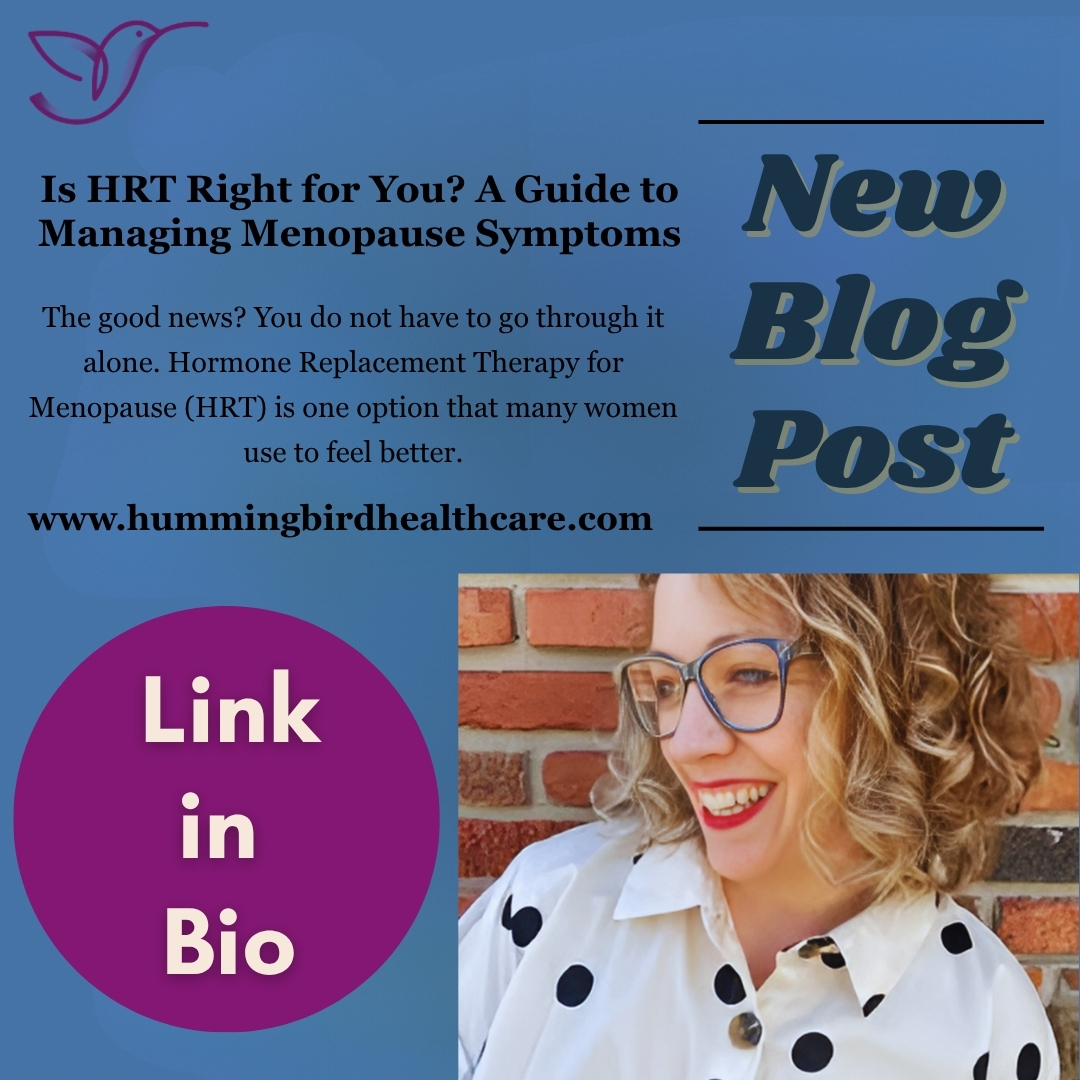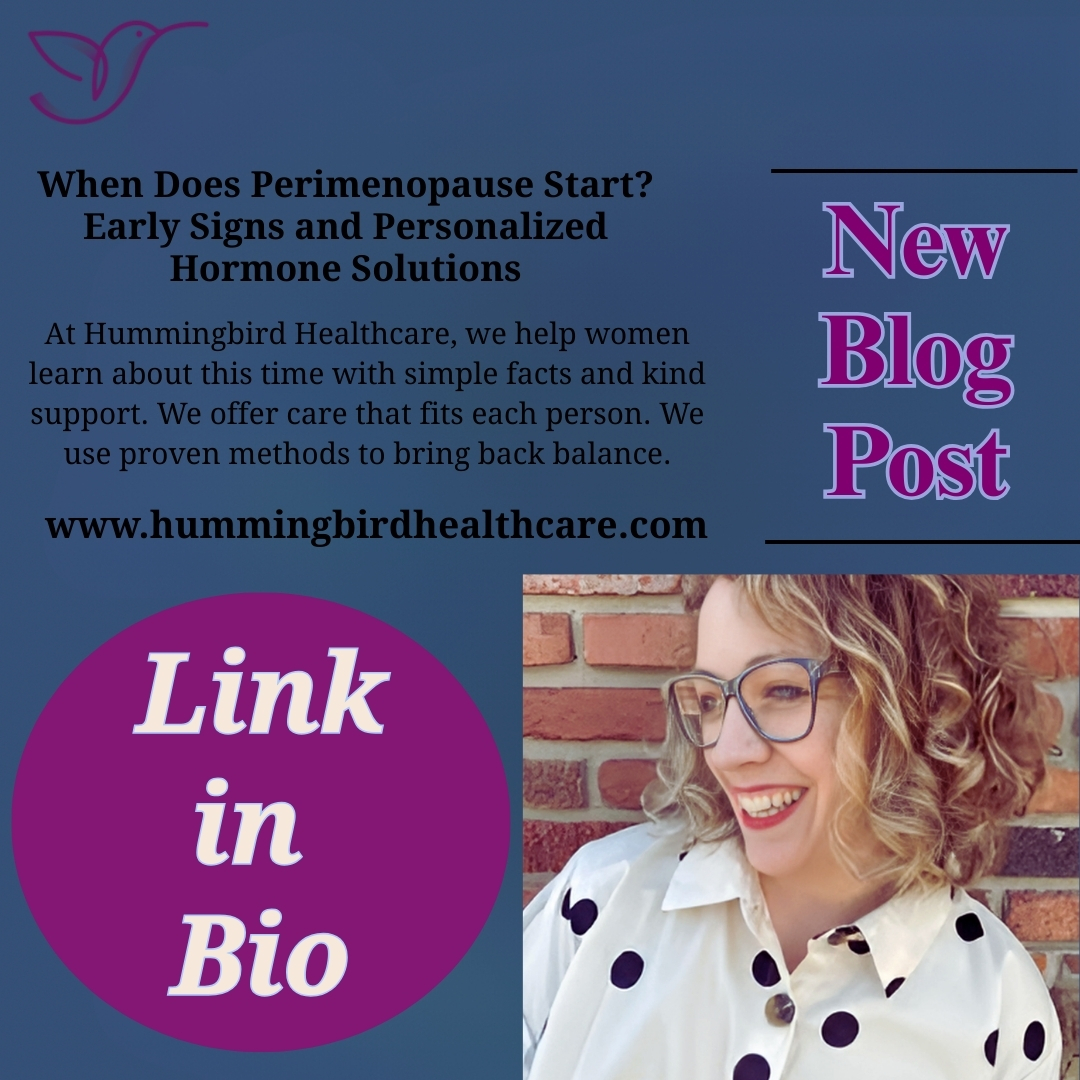Are you feeling off lately? Maybe you are having hot flashes, mood swings or trouble sleeping. If you are between the ages of 45 and 55, these changes might be signs of menopause. This phase of life is normal but it can be uncomfortable.
The good news? You do not have to go through it alone. Hormone Replacement Therapy for Menopause (HRT) is one option that many women use to feel better. But how do you know if it is right for you?
This blog will help you understand what HRT is, how it works and what to think about before starting. Let’s take a closer look together.
Hormone Replacement Therapy -What is It?
Hormone Replacement Therapy (HRT) is a treatment that adds hormones mainly estrogen and progesterone back into your body. These are the hormones that your body makes less of during menopause.
When these hormones drop, you may feel symptoms like:
- Hot flashes
- Night sweats
- Mood changes
- Irregular periods
- Vaginal dryness
- Trouble sleeping
- Joint or muscle pain
HRT helps balance these hormone levels so you can feel more like yourself again.
Who Can Benefit from Hormone Replacement Therapy for Menopause?
HRT isn’t for everyone, but it can help many women who are struggling with symptoms.
You may be a good candidate if:
- Your menopause symptoms are strong or hard to manage
- You started menopause early (before age 40)
- You had surgery to remove your ovaries
- Your symptoms are affecting your daily life
Before starting HRT, you should talk with your healthcare provider. They will look at your medical history and talk with you about what’s safe and helpful for your body.
Types of HRT: What Are Your Options?
HRT comes in a few different forms. Your doctor will help you choose what works best for your body and symptoms.
1. Estrogen-only HRT
Used for women who have had a hysterectomy (uterus removed).
2. Estrogen + Progesterone HRT
For women who still have a uterus. The progesterone protects the uterus lining from damage.
3. Low-dose vaginal treatments
Creams, tablets, or rings for vaginal dryness or pain during sex.
4. Bioidentical Hormones
These are plant-based hormones that are very similar to your body’s own. Some women prefer these as a more natural option.
Are There Any Risks with HRT?
Yes, there can be some risks. That’s why it’s important to work closely with a medical professional.
Common side effects:
- Bloating
- Breast soreness
- Headaches
- Spotting between periods
Possible long-term risks:
- Slightly higher chance of blood clots or stroke
- Small increased risk of breast cancer (especially with long-term use)
Every woman’s body is different. Your doctor will help you decide if the benefits outweigh the risks for you.
Benefits of HRT: How Can It Help You?
Many women feel much better after starting HRT. Here are some of the most common benefits:
Fewer Hot Flashes
HRT helps calm the body’s temperature changes.
Better Sleep
Night sweats and restlessness often improve.
More Stable Mood
Hormones help with mood swings, anxiety and low energy.
Healthier Bones
Estrogen helps keep your bones strong and may lower the risk of fractures.
Better Intimacy
HRT can reduce dryness and pain and may even help with low sex drive.
How Long Do Women Stay on HRT?
There’s no set answer. Some women use HRT for a few years to get through the hardest part of menopause. Others may stay on it longer with their doctor’s guidance.
Most doctors suggest using the lowest dose that works, for the shortest time that helps. Regular check-ups help make sure the plan stays right for you.
How Do I Get Started with HRT?
Starting HRT is simple. At Hummingbird Healthcare, we take time to get to know you and your symptoms.
Your HRT Journey:
- Book a telehealth appointment
Talk about your symptoms, health history and concerns. - Get any needed tests
Sometimes your provider may order bloodwork or screenings. - Start your plan
You’ll be offered pills, patches, creams or other types whatever suits your body best. - Follow up visits
Your provider will check in to see how you are doing and adjust your plan if needed.
Can I Support My Body Naturally Too?
Yes! Lifestyle changes work well alongside HRT—or even on their own if you’re not ready for hormones yet.
Try these tips:
- Stay active – Exercise helps with mood, sleep and bone health.
- Eat well – Foods rich in calcium and vitamin D support your bones.
- Sleep better – Go to bed at the same time each night and avoid screens before bed.
- Reduce stress – Breathing exercises, yoga, or short walks can help.
Even small changes can make a big difference in how you feel.
When Should You Avoid HRT?
HRT may not be safe for every woman. You should avoid it if you have:
- A history of breast or ovarian cancer
- A history of blood clots or stroke
- Liver problems
- Are pregnant or might become pregnant
Your provider will talk through all of this with you before starting any treatment.
Last Words
Menopause is a natural part of life, but that doesn’t mean you have to struggle through it. If symptoms are getting in the way of your sleep, mood, or health, Hormone Replacement Therapy for Menopause might be a helpful option.
At Hummingbird Healthcare, we offer personalized support to help you feel your best. Whether you're just starting menopause or already deep in the journey, we're here to help you feel strong, balanced and well again.
Ready to feel like yourself again?
Book a telehealth appointment with Hummingbird Healthcare today and find out if HRT is the right fit for you.





